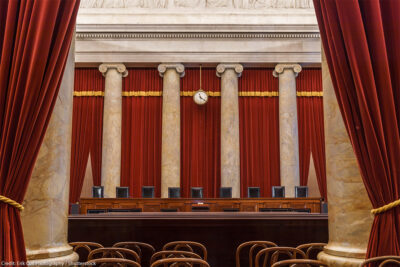
McElrath v. Georgia
What's at Stake
Does the Double Jeopardy Clause bar an appellate court from reviewing and setting aside a jury’s verdicts of acquittal on the ground that the verdict is inconsistent with the jury’s verdict on other charges?
Summary
The Supreme Court has stated that the “most fundamental rule in the history of double jeopardy jurisprudence” is that acquittals are in-violate, no matter the reason behind them. As a result, no judge can overturn an acquittal, even if the acquittal is based on bias or mistake. And no prosecutor can re-try a defendant on the acquitted charge.
But in this case, the Georgia Supreme Court vacated an acquittal, as well as two convictions arising from the same trial, on the ground that the verdicts were inconsistent, or in its words, “repugnant.” It therefore treated them as “valueless,” and vacated them all. As a result, Mr. McElrath faces re-trial on a charge for which he was acquitted.
The ACLU, the ACLU of Georgia, and the National Association of Criminal Defense Lawyers filed an amicus brief in support of Mr. McElrath. We argue that the bright-line rule barring judges from reviewing and reversing acquittals exists to protect the jury’s structural role in the criminal system as a critical safeguard for defendants. The jury stands between the accused and the State, preventing judges or prosecutors from wielding the criminal sanction unless a jury of the accused’s peers agrees. The jury checks judges and prosecutors through its acquittal power, and out of respect for the jury’s sovereignty and the individual’s right to a jury trial, juries have “unreviewable power” to acquit, “even for impermissible reasons.” We argue that creating an exception for verdicts that a reviewing court deems “inconsistent” or “repugnant” would contravene the structural role assigned to the jury in our legal system, and invite judges to reverse acquittals with which they disagree.
Legal Documents
-
09/05/2023
Amicus Brief in Support of Petitioner
Date Filed: 09/05/2023
Court: Supreme Court
